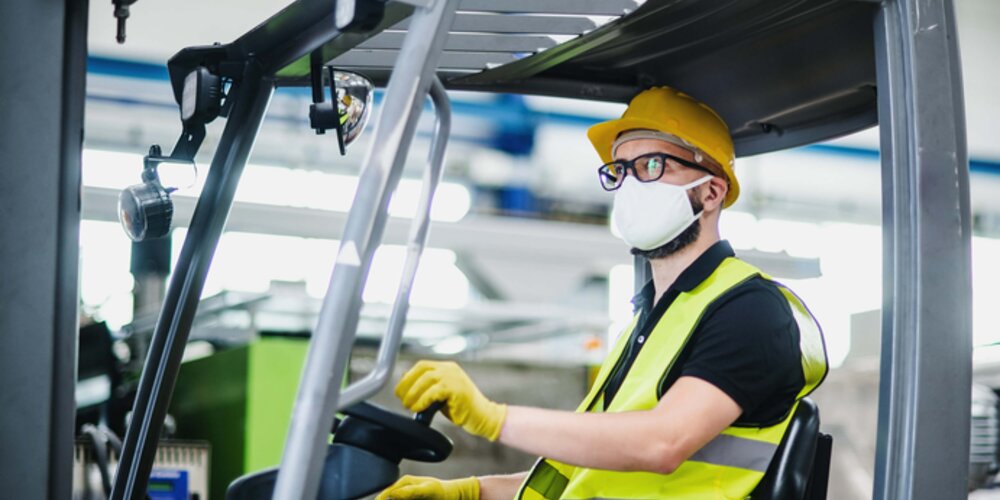TT Talk - Remotely retrospective

Much of the world has experienced a year like no other and it seems that elements of life remain hung over despite the transition to 2021. As expectations run high that the world can overcome the pandemic, it might be time to consider 'COVID-keeps'.
When rumours started emerging early in 2020 about the rapid spread of a deadly virus, few would have foreseen that a year later large tracts of the globe would still be reeling politically, economically and commercially. Thankfully the science has advanced rapidly, particularly embracing research that had long been underway but perhaps lacking the necessary compelling use case. It might be considered that digital advances across the international corporate and governmental landscapes have also been given a 'shot in the arm' - and it scarcely bears thinking what might have happened just two or three years ago.
Many businesses and workers have 'stepped up the plate' in overcoming substantially changed working practices. This has necessarily impacted both every interaction that is internal to any entity, as well as the myriad of interfaces with others from around the globe - the 'bread and butter' of the international transport and logistics industry.
It would be hoped that we can all step away from crisis mode during the coming year. And that will be very welcome, most of all in terms of the individual human well-being that is fundamental to every organisational machine. While over months it has proved possible to maintain endeavours at every level, it should not be overlooked that this has been at significant personal cost - perhaps most starkly demonstrated with the continuing difficulties in transferring seafarers. Physicians and psychologists can tell of the impact sustained stress may have; entities need to plan mitigation for this, as well consider how to lead to the new 'norm'.
"The last year has merely reiterated this in the inability for some functions to be carried out remotely and the reliance of workforce availability"
Transport and logistics has traditionally been a mixture of the highly physical and the detailed record-keeping. While containerisation itself has plotted a course in reducing some elements of physical interaction (see Brave new world - container transport in 2043), one of the key challenges facing disruptors has remained the fact that moving stuff - however far - is intrinsically a physical activity. The last year has merely reiterated this in the inability for some functions to be carried out remotely and the reliance of workforce availability.
Presence
Some enquiries faced by TT and recorded amongst its Coronavirus guidance page related to the ways in which maintenance and inspections could be continued during periods of disrupted mobility. Clearly, such activities are equally challenging for remote working.
Nevertheless, many functions in this industry can be - and have been - successfully carried out by workers who have involuntarily and rapidly relocated away from their usual workplace. It is testament of mankind's advance that this has to a large extent been successful. Data and paperwork have over recent decades been increasingly transferred electronically; those remaining bastions of paper and 'chops' may be counting their days.
Technologies
The reliance in all kinds of transactions - and most particularly related to the global supply chain - have been moving inexorably forward on the basis of information and communication technologies. Even in recent months, advances in digitisation have had similar reliance. However, potentially more important - at least from a risk perspective - has been the increasing adoption of operational technologies (OT) that underpin much of automation and overall performance of 'kit'. Perhaps the unfolding innovation in the industry is morphing in favour of the 'Internet of Things' (IoT). Proper adoption of both OT and IoT will increasingly strengthen fundamental safety, enable robust decision-making and facilitate sound remote working practices.
All such technologies have potential to support transitioning to more remote working in the future. Entities throughout the industry have both the challenge and the opportunity as we move away, hopefully, from pandemic crisis mode to embrace some of the enforced practices, adapting them further to make them entirely fit for purpose and robust.
Right space
Thus, while it is the responsibility of individual workers to ensure that, as far as possible, their own remote work practices evolve successfully, entities need to ponder further how to grasp the future. The former need to ensure that the space and work tools are fully appropriate, supported naturally by their employers, while embedding disciplines around worktime boundaries and management of distractions. The latter have more complex tasks, without compromising legal or moral values, including infrastructure and toolset issues, and taking account of pernicious threats such as cyber activity.
"Perhaps it all comes together in the challenge of overall personal well-being"
Perhaps it all comes together in the common challenge of overall personal well-being. Both individuals and organisations have an overriding interest in engendering ongoing human contact, community cohesion and cultural alignment. Understanding and alleviating the enduring 'fight' mode that has beset recent months, finding ways above all to value individuals in all functions, may define success for many - and could be the most prized 'COVID-keep'.
-
We hope that you have found the above interesting. If you would like further information, or have any comments, please email us, or take this opportunity to forward to any colleagues who you may feel would be interested.
We look forward to hearing from you.
Peregrine Storrs-Fox
Risk Management Director, TT Club
Documents
TT Talk 270 Chinese Translation (654 kB) 07/02/2021
- Author
- Peregrine Storrs-Fox
- Date
- 12/01/2021





